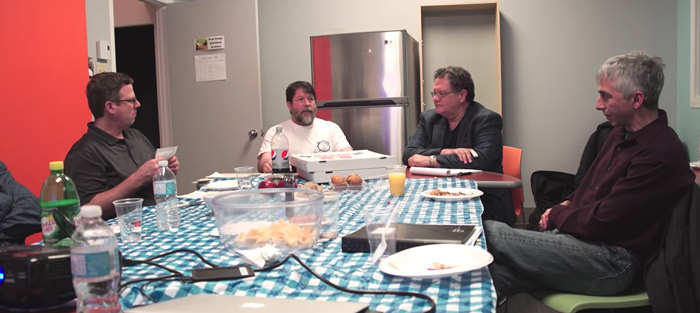In Canada, approximately 40 per cent of heterosexual marriages end in divorce, with women initiating 70 per cent of those breakups. In divorces that involve the custody of children, judges nearly always give full custody to mothers. Historically, a common custody arrangement only let the father see his children every other weekend. This was because the dominant research throughout the last half of the 20th century was focused on the importance of the mother’s role in the child’s development and not on the father’s role. Advancements in psychology have come to demonstrate the importance of the father figure in the lives of children.
Dr. Robert Whitley, assistant professor in Psychiatry and principal investigator of the Social Psychiatry Research and Interest Group (SPRING) at Douglas Hospital Research Centre, focuses his research on recovery and stigma. This month, he directed a short documentary entitled, Père-sévérance: Briser L'isolement (Separated Fathers: Breaking the Isolation). The film chronicles a group of separated fathers who use or have used the services at Pères Séparés (Separated Fathers) inc., a not-for-profit referral centre located in eastern Montreal. In this documentary, the fathers discuss their experiences, feelings, and perseverance through their divorce and separation from their children. The film stresses the importance of a father figure in the lives of children.
The ending of any meaningful relationship is always extremely difficult for both partners. Men and women often have different ways of dealing with their emotions after a divorce and the documentary takes the perspective of the man. In general, men have trouble dealing with their emotions because they are socialized not to vocalize them and find it harder to do so than women.
“They tend to keep to themselves to avoid the judgment of others because they think that if they say something to someone it will be perceived as a failure on their part,” Jerome, a father in the documentary, separated since 2008, said.
Many men also have a reflex to isolate themselves, which is tied to traditional ideals of masculinity or the perception of the quintessential man who is strong, autonomous, and capable of coping. Patrick, a father in the documentary who has been separated from his wife since 2006, describes his feelings of isolation and helplessness.
“I found myself feeling vulnerable and completely weak,” Patrick said. “I had suicidal thoughts and was ready to act them out.”
From the child’s perspective, previous research was centred on determining the role of the maternal figure in a child’s life. In general, findings stated that absence of a mother figure in the early years of child development can lead to delinquent character development and persistent misbehaviour in children. Newer research findings presented in the documentary do not undermine the importance of the mother, but particularly emphasize the father’s role in child development.
“It is essential for children to have access to both their parents,” Martin, a father who has been separated since 2014, said in the documentary. “It is what is best for the children. However, there are exceptions and situations and cases where it may not be ideal to grant joint custody [.…] Children need both their parents, but only if the parents are stable.”
The organization highlighted in the documentary, Pères Séparés (Separated Fathers) inc., aims to break the isolation by bringing together groups of separated fathers and providing a safe, non-judgmental space where they can share their experiences and thoughts. The organization offers resources over the phone and over Skype, as well as individual hour-long meetings, weekly support groups, and meetings with a volunteer family lawyer. Patrick describes how he overcame his suicidal thoughts with the help of Separated Fathers inc.
“I got through it by remembering the saying that suicide is a permanent solution to a temporary problem,” Patrick said. “Just the fact that I was not alone and that we were all experiencing the same suffering awakened something in me.”
A few years later, he is now a facilitator at Separated Fathers inc. and leads the support groups.
The film highlights the need for further information that focuses on fathers who go through divorce.








